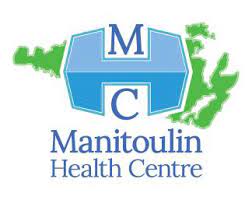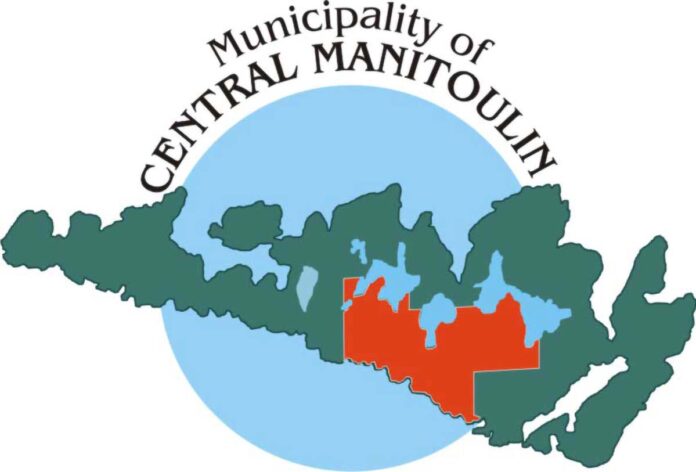ONTARIO—The recent auditor general report backs up the concerns raised by hospital officials from across Northern Ontario, including the Manitoulin Health Centre and local and provincial politicians.
Michael Mantha, MPP for Algoma-Manitoulin said after the recent release of the report that, “the Auditor General Report shows us in black and white the level of neglect that this government has for our publicly funded hospitals and healthcare facilities in Northern Ontario.”
“The report outlined ongoing closures in hospital services across the North: hundreds of patients waiting for long-term care and home-care service who are stuck in hospital, Northern communities struggling to fundraise for diagnostic imaging equipment without ministry support and a failure to account for Northern Ontario’s unique healthcare needs in the government’s provincial strategies,” said MPP Mantha.
“It also revealed that under this government more and more money is going to private, for-profit staffing agencies, which costs us all up to three times more for the same services,” continued MPP Mantha. “Between 2018 and 2023, the use of agency nurses increased 25 times for Northern hospitals. The 29 hospitals surveyed in the report spent around $78 million on agency staff in 2023 alone.”
“We now see beyond a doubt that communities in Northern Ontario are being underserved by the Ford government when it comes to healthcare,” continued MPP Mantha. “With many small and rural hospitals facing growing financial strain and patients waiting longer to receive care in the North, it’s time to act. I’m calling on the Minister of Health to commit to commit to implementing all the recommendations of the auditor general’s report. Create a funded healthcare plan that addresses the unique needs of communities in Northern Ontario and ensure Northerners have timely and patient-centred care wherever they live.”
Paula Fields, president and chief executive officer of MHC, told The Expositor, “Small, rural hospitals like MHC are often the entry point into the healthcare system in remote areas and strive to provide timely, high quality and culturally safe care to a diverse population. The auditor general’s report exposes the challenges that small rural hospitals are facing: underfunding, depletion of health human resources, supports to implement Indigenous best practices and an overall lack of planning by the provincial government.”
“The Ontario Hospital Association and small rural hospitals are asking the ministry to work with them in the development of a healthcare strategy that meets the needs of Northern Ontario inclusive of financial recovery assistance, adequate ongoing base funding and sustainable long-term solutions to the health human resource crisis,” said Ms. Fields.
“Hospitals such as MHC took a leadership role and lived by our values of respect, passion and truth in supporting the community through a pandemic only now to face challenges that cannot be resolved independently or remotely,” continued Ms. Fields “We are hopeful that the ministry will be responsive to the recommendations made in the report so MHC can continue to meet our mission ‘to contribute to the health and well-being of all who come to us in need.’”
Dr. Stephen Cooper said, “It seemed there were two things that the auditor general was saying that were very pertinent. One, that the Ministry of Health does not have a Northern health care strategy in place, which is true. The auditor general said we need to recognize the challenges being felt and what leads to poorer health outcomes.”
“Secondly, the ministry has a number of mechanisms or measurements to support healthcare in the North, but it is not consistent in the measurements,” said Dr. Cooper. “The ministry responded by accepting the criticism and from an auditor’s perspective they want to see good value for the money.”
“Many of the auditor general’s criticisms are well founded, such as the shortage of physicians, doctors and nurses. We have shortages in the hospital sectors, especially in areas like Manitoulin Island,” said Dr. Cooper. “And that large portions of the hospital budget is spent on (agency) nurses because we don’t have the resources.”
Acting Auditor General Nick Stavropoulos said Ontario has no central plan to help hospitals tackle nurse shortages that has led to temporary emergency department closures, while a significant portion of ER patients are only there because they don’t have a family doctor.
There were more than 200 unplanned temporary emergency department closures in 23 Ontario hospitals between July 2022 and June 2023 due to doctor and nurse shortages, the report states.
Mr. Stavropoulos said the government has no central plan to help hospitals maintain nurse staffing levels to avoid ER closures, nor was there a province-wide strategy on staffing issues in long-term care homes.
“Instead, the ministry and Ontario Health generally relied on hospitals to manage these situations independently, typically by closing their emergency departments or using more expensive agency staff where possible,” the report said.
“A province-wide strategy to help hospitals and long-term care homes maintain appropriate staffing levels is critical for the sector’s success moving forward,” said Mr. Stavropoulos.
Physician and nurse shortages and the lack of a dedicated healthcare strategy for Northern Ontario create barriers to timely and equitable patient care,” said the auditor general. “Northern hospitals become increasingly more reliant on agency nurses than other parts of Ontario. While these nurses fill important gaps, this comes at a much higher cost. The province needs to ensure better access to appropriate and equitable levels of care for people in Northern communities.”
The audit found that patient care and access to services more readily available in southern Ontario are limited by staff shortages at Northern hospitals. For example, physician and nursing shortages led to obstetrics services closing at 10 hospitals in the region between July 2022 and September 2023, and four remained closed as of September, with three of those closed for more than one year. Ontario Health, the provincial agency responsible for overseeing hospitals, does not centrally monitor all instances of service closures at hospitals.
Northern hospitals also face the high cost of nurses hired from agencies to address staff shortages. Between 2018-2019 and 2022-2023, the use of agency nurses increased 25 times for hospitals in Northern Ontario compared to about two and a half times for hospitals in the rest of the province. “Agencies charged the Northern hospitals that we visited during this audit about three times the hourly rate of a permanent nurse, in addition to accommodation and travel costs, in 2022-2023,” the report says.
The audit also found more than 330 patients occupying Northern hospital beds were waiting for long-term care or home care. This limits hospitals capacity to care for other patients and adds to wait times,” said the report. It will cost an estimated $65 million in funds that the province could have saved if spaces in other care settings had been readily available. The cost to keep a patient in a hospital is higher than long-term care home, and a long-term care home costs more than home care.
The auditor general said, “Ontario hospitals are expected to purchase magnetic resonance imaging (MRI) and computed tomography (CT) scan machines by fundraising, but many Northern hospitals are located in rural areas, which may make it challenging to raise the required funds to purchase these machines.”
“The lack of a province-wide strategy to help hospitals prevent emergency department closures in addition to ongoing staffing shortages continues to put a strain on hospitals,” said Mr. Stavropoulos. “This means that patients are less likely to receive effective, timely care when they need it.”
The audit also found that a lack of nursing staff to quickly triage patients who are brought into emergency departments via ambulance delays paramedics from returning to communities to respond to other emergency calls. While some paramedics and hospitals have worked together to improve turnaround times, not all hospitals have consistently adopted these best practices.
“We found there were over 200 unplanned emergency department closures involving 23 hospitals, mostly in rural or remote areas, between July 2022 and June 2023, largely due to nursing and doctor shortages. If it wasn’t for a Ministry of Health program that provides doctors to fill these gaps on an interim basis, there could have been an estimated 400 additional closures during the 2022-2023 fiscal year,” the report found.
“To address these shortages, hospitals also rely on nurses from agencies at significantly higher hourly rates than permanent nurses. This can range from more than $75 per hour compared to the $35 to $50 per hour that full-time hospital nurses make,” reported the auditor general. “The province should work with hospitals to address challenges in Ontario’s emergency departments and develop new ways to improve access to timely care.”
“The worsening staff shortages have been fuelled by the provincial Bill 124, which limits nurses and many other public sector workers to maximum annual pay hikes of one percent,” the auditor general said.
Within an hour of Mr. Stavropoulos’ news conference about his findings, the government announced a new auditor general, Shelley Spence.





